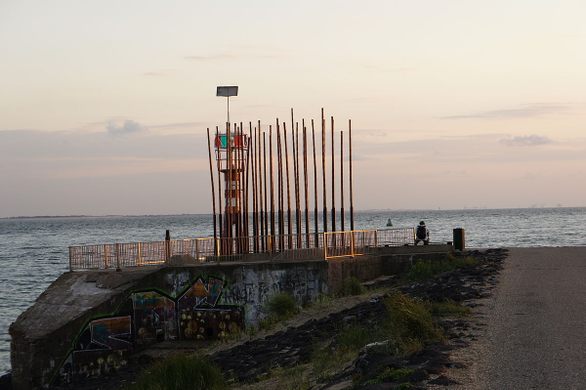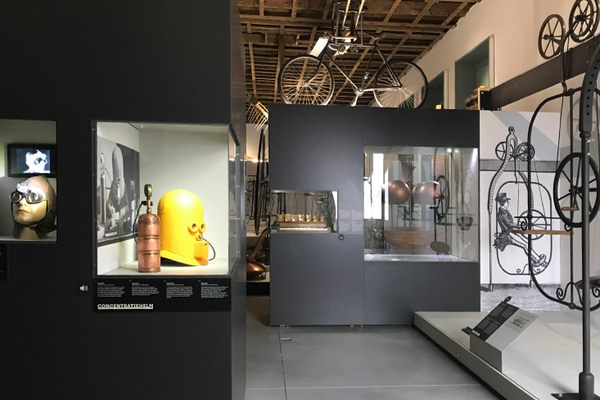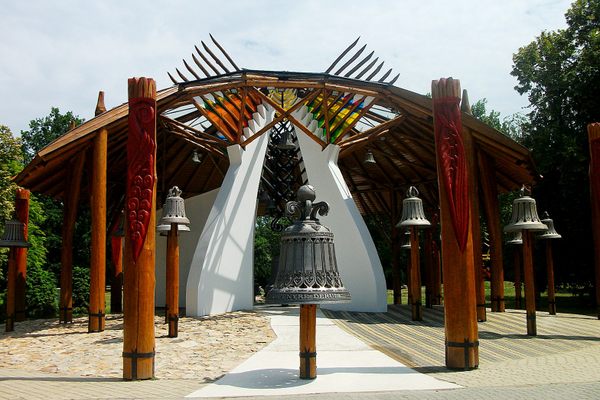Vlissingen Wind Organ
A set of 27 bamboo tubes creates an eerie soundscape that changes with the wind.
In 1975, a Belgian artist named Raphael August Opstaele had a lofty ambition: He wanted to build a series of wind organs along the Atlantic coast, starting from West Africa and going all the way up to the North Pole.
Known for his large-scale installation experiments with non-traditional materials, Opstaele began his “Soundstream” project by building a giant wind organ on the waterfront of the Dutch city of Vlissingen. It is, by most accounts, the only wind organ that actually materialized from the ambitious project.
The instrument is made up of 27 tall, vertically placed bamboo pipes. They are arranged in a formation that produces a sound when the wind blows inside and around it. The soundscape changes with the direction and speed of the wind: What is usually a low hum can become a rousing tune when a storm strikes the coast.
Opstaele’s original version of the wind organ was created using Cameroonian bamboo specially sourced for the installation. This version was unfortunately destroyed less than a year after it was completed, by a particularly strong storm. It was rebuilt with the help of donations, and this time around situated on the remnants of the Nolle bunker, a relic of World War II.
The instrument was damaged yet again in 1981, but this time by vandals who cut down more than half the pipes. Another round of fundraising helped reconstruct the pipes that stand now and have played their eerie melody every day since.
Know Before You Go
It is located at the end of Nollehoofd Street.

















Follow us on Twitter to get the latest on the world's hidden wonders.
Like us on Facebook to get the latest on the world's hidden wonders.
Follow us on Twitter Like us on Facebook